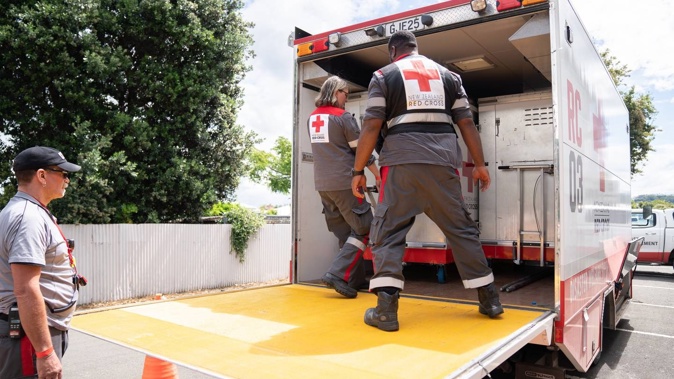
Six months to the day since Cyclone Gabrielle struck, the New Zealand Red Cross is yet to finish allocating its now more than $27 million NZ Disaster Relief Fund.
But one of its top executives says there are strong plans in place, and a commitment, to allocate the remaining $7m by February’s one-year anniversary.
The organisation said from the early stages of the cyclone recovery, it wanted to allocate most of the funds in the first six months after the cyclone.
Red Cross NZ emergency management and international general manager Sean Stewart said at the time of that statement, the fund was sitting at about $21m.
“I think it’s gone well. We’ve now committed over $20m of the fund, which has continued to grow,” Stewart said.
“I remember talking about the fund two or three months ago, and we were probably sitting at around $21m.
“For us to have committed basically what we thought we’d get to, and the fact the fund has grown to $27m, is wonderful.”
He said most of the remaining funding would go towards the ‘Resilience Investment Programme’, which involves investing in disaster-hit communities in New Zealand so that they are better prepared for what is to come.
“That does take a little bit of thought. Some of these projects to get communities where they need to be involve significant costs, so we will have to be working with local government and partners.”
The organisation noted many groups in Hawke’s Bay that applied for grant funding were in fact applying for funding for resilience programmes and equipment.
These applications were deferred until the programme started up, with the organisation looking at around 10 of these applications for up to around $2m in funding.
The funds would not be ‘saved’ for future events.
Resilience wouldn’t stop when the fund expired, Stewart said.
“The things we do with that funding will also be done elsewhere in the country with new money.”
On the fund’s six-month journey, one thing Stewart said he had reflected on the most was its complexity.
“We’ve had to really focus on what the community needs are and understand them before we progressed the investment.
“It’s not a one-size-fits-all [situation].”
Stewart said this was apparent during the earlier stages of Cyclone Gabrielle in Hawke’s Bay, when the clean-up was at the front and centre of people’s minds and the pressure to spend was on.
“We knew that the fund could have easily been completely consumed by that work alone.
“[We needed to make sure] on balance that we were clear on what was appropriate for the fund versus what Government and local government should be supporting, given it was a $1 billion problem and not a $1m one.”
Around $5m went into the initial clean-up work across the region, with a focus on those who weren’t insured as well as those who needed immediate access around their homes.
“I’m pretty proud of that. Despite the pressure to just get it done, I think being thoughtful and being considered did pay off.”'
So far, more than half of the funds have gone to Hawke’s Bay.
“The Hawke’s Bay clean-up wasn’t insignificant. By the time we had the funding available, most of the Auckland clean-up challenge had been sorted.
“That’s why we ended up with an emphasis on most of that funding going towards Hawke’s Bay. It’s about listening to where the need is and supporting it as best as we can.”
Stewart said about $2.5m went toward “home bundles” work, which helped provide flood-affected people in the region with supplies for when they transitioned into a new home.
“Had we have jumped in early and extinguished the funds, we wouldn’t be able to look after people as they transitioned back into their homes.”
So, what went right and what could have gone better in the funding rollout?
Stewart said the “through community, with community” process was well-executed.
“From working with [the community], we’ve been able to manage that diversity of investment need and to tailor it.”
One word comes to Stewart’s mind when reflecting on criticism of the organisation’s rollout - speed.
“We’ll be looking at where perhaps we could’ve done some things better in terms of some of that earlier work, but I think that was more about our messaging and ability to be a bit clearer as to why it was a challenge upfront.”
He also confirmed a full review of the funding project and disaster response would take place.
“We’ve already had a session with our volunteers around the initial response. We’ll be tidying up a few of our own processes and procedures around that.”
Stewart also gave a “big shout-out” to Kiwis who had contributed towards the fund and confirmed the organisation wasn’t going to be leaving affected regions any time soon.
“Red Cross is in it for the long haul. While the focus has been on the fund, we also have people in these communities working from those communities.”
Mitchell Hageman joined Hawke’s Bay Today in late January. From his Napier base, he writes regularly on social issues, arts and culture, and the community.
Take your Radio, Podcasts and Music with you









